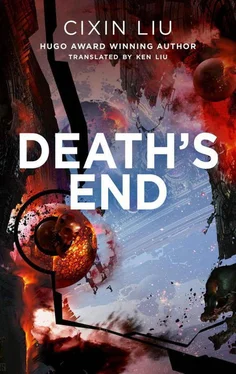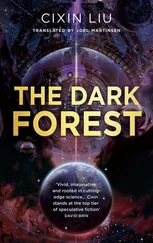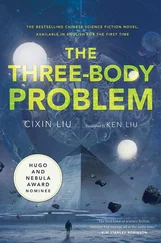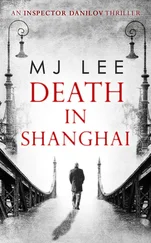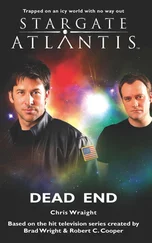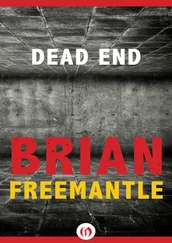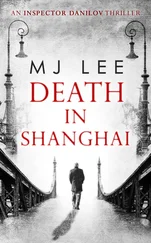Tianming stared at Wen, not knowing what to say. Wen had graduated as an aerospace engineer, but now he had turned into a beverage entrepreneur. He was someone who did things, who got things done. Life belonged to people like that. But people like Tianming could only watch life pass them by, abandoned and left behind.
“I owe you,” Wen said. He handed three credit cards and a slip of paper to Tianming, looked around, leaned in, and whispered, “There’s three million yuan in the account. The password is on the note.”
“I never applied for a patent or anything like that,” Tianming said.
“But it’s your idea. Without you, there would be no Green Tempest. If you agree, we’ll just call it even, at least legally. But as a matter of our friendship, I’ll always owe you.”
“You don’t owe me anything, legally or otherwise.”
“You have to accept it. I know you need money.”
Tianming said no more. For him, the sum was astronomical, but he wasn’t excited. Money wasn’t going to save him.
Still, hope was a stubborn creature. After Hu Wen left, Tianming asked for a consultation with a doctor. He didn’t want Dr. Zhang; instead, after much effort, he got the assistant director of the hospital, a famous oncologist.
“If money were no issue, would there be a cure for me?”
The old doctor brought up Tianming’s case file on his computer, and after a while, he shook his head.
“The cancer has spread from your lungs throughout your body. Surgery is pointless; all you have are chemo and radiation, conservative techniques. Even with money…
“Young man, remember the saying: A physician can only cure diseases meant to be cured; the Buddha can only save those meant to be saved.”
The last bit of hope died in Tianming, and his heart was at peace. That afternoon, he filled out an application for euthanasia.
He handed the application to his attending physician, Dr. Zhang. Zhang seemed to suffer some internal, moral conflict, and did not meet Tianming’s gaze. He did say to Tianming that he might as well stop the chemo sessions; there was no point for him to continue to suffer.
The only matter that Tianming still had to take care of was deciding how to spend the money from Wen. The “right” thing to do would have been to give it to his father, and then let him distribute it to the rest of the family. But that was the same as handing the money to his sister, and Tianming didn’t want to do that. He was already going to die, just as she wanted; he didn’t feel he owed her any more.
He tried to see if he had any unfulfilled dreams. It would be nice to take a trip around the world on some luxury cruise ship… but his body wasn’t up for it, and he didn’t have much time left. That was too bad. He would have liked to lie on a sun-drenched deck and review his life as he gazed at the hypnotic sea. Or he could step onto the shores of some strange country on a drizzly day, sit next to a little lake and toss wet pebbles onto a surface full of ripples….
Once again, he was thinking of Cheng Xin. These days, he thought of her more and more.
That night, Tianming saw a news report on TV:
The twelfth session of the UN Planetary Defense Council has adopted Resolution 479, initiating the Stars Our Destination Project. A committee formed from the UN Development Program, the UN Committee on Natural Resources, and UNESCO is authorized to implement the project immediately.
The official Chinese website for the Stars Our Destination Project begins operation this afternoon. According to an official at the UNDP resident representative office in Beijing, the Project will accept bids from individuals and enterprises, but will not consider bids from non-governmental organizations….
Tianming got up and told his nurse that he wanted to take a walk. But as it was already after lights out, the nurse refused to let him leave. He returned to his dark room, pulled open the curtains, and lifted the window. The new patient in Lao Li’s old bed grumbled.
Tianming looked out. The lights of the city cast a haze over the night sky, but it was still possible to pick out a few silvery specks.
He knew what he wanted to do with his money: He was going to buy Cheng Xin a star.
Excerpt from A Past Outside of Time Infantilism at the Start of the Crisis
Many of the events during the first twenty years of the Crisis Era were incomprehensible to those who came before and those who came after; historians summarized them under the heading of “Crisis Infantilism.”
It was commonly thought that Infantilism was a response to an unprecedented threat to the entirety of civilization. That might have been true for individuals, but it was too simple an explanation when applied to humanity as a whole.
The Trisolar Crisis’s impact on society was far deeper than people had imagined at first. To give some imperfect analogies: In terms of biology, it was equivalent to the moment when the ancestors of mammals climbed from the ocean onto land; in terms of religion, it was akin to when Adam and Eve were banished from Eden; in terms of history and sociology… there are no suitable analogies, even imperfect ones. Compared to the Trisolar Crisis, everything heretofore experienced by human civilization was nothing. The Crisis shook the very foundation of culture, politics, religion, and economics. Although the impact reached the deepest core of civilization, its influence manifested most quickly at the surface. The root cause for Crisis Infantilism may well be found in the interaction between these manifestations and the tremendous inertia of human society’s inherent conservatism.
The classic examples of Crisis Infantilism were the Wallfacer Project and the Stars Our Destination Project, both international efforts within the framework of the United Nations—initiatives that soon became incomprehensible to anyone from outside that period. The Wallfacer Project changed history, and its influence so permeated the course of civilization that it must be discussed in another chapter. The same elements that led to the birth of the grand Wallfacer Project simultaneously conceived the Stars Our Destination Project. That project, on the other hand, quickly faded away after launch and was never heard from again.
There were two main motivations for the Stars Our Destination Project: first, to increase the power of the UN at the beginning of the Crisis; second, the genesis and popularity of Escapism.
The Trisolar Crisis was the first time that all of humanity faced a common enemy, and it was only natural that many placed their hopes in the UN. Even conservatives agreed that the UN ought to be completely reformed and given more power and more resources. Radicals and idealists pushed for an Earth Union and for making the UN into a world government.
Smaller countries, in particular, favored elevating the status of the UN because they saw the Crisis as an opportunity to get more technological and economic aid. The great powers, on the other hand, responded to this coolly. In actuality, the great powers all invested heavily in space defense after the Crisis. In part, this was because they realized that contribution to space defense would become the foundation for national strength and political status in future international relations; it was also because they had always wanted to invest in such large-scale basic research, but the domestic demands of their citizenry and constraints imposed by international politics had made such efforts impractical in the past. In a sense, the Trisolar Crisis provided the leaders of the great powers with an opportunity similar to the opportunity given to Kennedy by the Cold War—similar, but a couple of orders of magnitude greater. While all the great powers were reluctant to place their efforts under the aegis of the United Nations, due to the rising tide of calls for true globalization, they were forced to cede to the UN some symbolic, political commitments that they had no intention of honoring. The common space defense system advocated by the UN, for example, received little substantive support from the great powers.
Читать дальше
